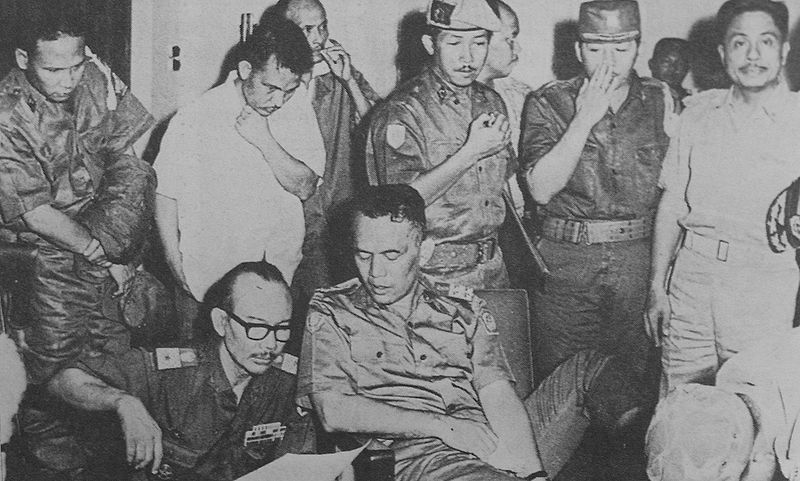 |
| Image: Wiki Commons |
By Mong Palatino
An international people’s tribunal at the Hague looks into one of the country’s most troubling periods.
An international people’s tribunal gathered testimonies and other evidence linking the Indonesian government to the anti-communist mass killings in 1965. The tribunal was held from November 10 to 13 in The Hague.
The mass killings targeted suspected members and sympathizers of the Indonesian Communist Party (PKI). The purge killed at least half a million people but some human rights groups believe the number of victims could be more than a million. The wave of violence lasted for several months between 1965 and 1966 but state forces continued to arrest, harass, and persecute hundreds of thousands of suspected communists into the early 1970s.
In September 1965, the PKI was accused of brutally killing high-ranking army generals in a failed coup. This prompted the military to retaliate. An army officer, Suharto, became president during this period and remained in power until 1998. Suharto banned all attempts to probe the 1965 killings. He has consistently blamed the communists for starting the conflict in 1965.
It was only after the resignation of Suharto that witnesses and survivors started to speak out about the events of 1965 and beyond. For many years, it was alleged that majority who suffered during the anti-communist witch hunt were innocent civilians. Many were tortured and detained without trial because of mere suspicion that they were friends or relatives of PKI members. More than 10,000 individuals were banished to the remote island of Buru and Plantungan in Central Java. Women and children endured sexual violence and discrimination for many years. Some detainees were subjected to forced labor.
The military has denied committing these crimes over the past 50 years. It has refused to acknowledge that atrocities were done against ordinary citizens. Its official version of history is to depict the PKI as a monstrous and anti-democratic political force which has to be outlawed and decisively defeated in order to save the Indonesian republic. Some army commanders were even declared heroes for leading the anti-communist campaign in the 1960s.
The strong influence of Suharto and the military in the post-1998 era has prevented a full investigation of what really happened in 1965.
Read the full story at The Diplomat
